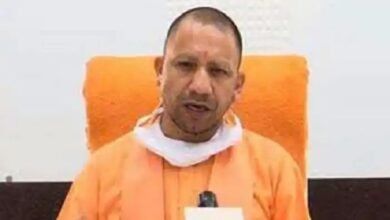[ad_1]
Reported By: Srishti Choudhary
Last Updated: December 11, 2023, 19:03 IST
Dubai, United Arab Emirates (UAE)

A deal on fossil fuels remains at the centre stage of COP28, which is set to deliver the first-ever Global Stocktake that will guide the next phase of climate action. (File pic/AP)
The language on fossil fuels in the final text is critical since it has consequences for developing countries like India hugely dependent on coal to secure energy access
Countries are still locked into major disagreements over a possible fossil fuel phase-out as the two-week-long UN climate summit gears up for its outcome, here in the UAE. A deal on fossil fuels remains at the centre stage of COP28, which is set to deliver the first-ever Global Stocktake that will guide the next phase of climate action.
UN climate change executive secretary Simon Stiell said early on Monday that negotiators are focused on getting an outcome within this next 24-hour period.
“Everything is on the table for an outcome that sends a signal that is responding to the climate crisis…Secure, affordable, safe energy for all, through a renewable energy revolution that leaves no country or community behind, instead leaving our dependence on fossil fuels behind,” he remarked, amid the continuing wait for the final revised draft text.
All through the last few weeks, COP28 president Dr Sultan Al-Jaber has reiterated that the historic summit is guided by its ‘North Star’ — the 1.5℃ goal set under the 2015 Paris Agreement. The highest climate ambition is what COP28 must strive for as the world inches closer to the devastating impacts of climate change.
However, the rocky negotiations over the past two weeks have demonstrated that the talks are rife with wide political differences stalling a consensus.
A possible deal on the phase-out of fossil fuels remains the most contentious, with developed and developing countries sparring over the language on it in the final text. Any outcome indicating a drastic/gradual reduction in the burning of all fossil fuels – coal, gas, and oil through phase out/phase down without adequate financial and technology support is unfair and detrimental for the developing countries, which are vastly dependent on coal to provide energy access to its billion-plus population. The last draft text indicated there is still no agreement with multiple options on abated/unabated fossil fuels, phase-down, phase-out still on the table. ‘Abated’ refers to the usage of experimental technologies like the Carbon Capture and Storage (CCUC).
Rich and developed countries like the US and the EU have been aggressively pushing for strong language on phase-out, even though they have been quietly ramping up their gas and oil capacities. But equity and climate justice are at the heart of India’s statements at COP28, which are marked with references to principles of Common but Differentiated Responsibility and Respective Capabilities (CBDR-RC). India has emphasised that all countries should have equitable access to the global carbon budget, and must stay within their fair share of this fast-depleting budget.
The rich nations like the US which is the world’s largest producer of oil have already used their fair share of the limited carbon budget, and bear the responsibility to lead in ambitious climate action, as they accounted for the majority of the historical emissions. India has stood for strong climate ambition but asserted that the developed countries must take the lead. India has opposed any attempts to single out coal and argued for a phase-down of all fossil fuels with equal emphasis on gas and oil.
Finance is another major sticking point, and bedrock to scale up climate action on all fronts. The long-promised 100 billion USD from developed countries is yet to come through, even as the need for climate finance required by developing countries has gone up from billions to trillions. The developing countries need low-cost, affordable, and accessible finance for mitigation, and adaptation as well as to minimise loss and damage. Any deal on fossil fuels would also be unfair until it is accompanied by adequate financial support for developing countries to make a just transition.
The draft text on Global Goal on Adaptation (GGA) released on Sunday is also expected to undergo revision, amid objections raised by India over certain key points, including fixing responsibility on finance. The COP28 has so far failed to make any significant progress in securing adaptation finance for the developing countries which are already bearing the brunt of climate disasters. Though the deal on the operationalisation of the Loss and Damage Fund on the first day with pledges worth 700 million USD was historic, it is yet to flow into actual finance.
Meaningful delivery of finance is at the core of climate action. The climate summit has also secured a global deal with over 123 countries on tripling renewable energy capacity and doubling the rate of energy efficiency by 2030 – both pacts were not signed by India.
With just a few hours left, the negotiators are now racing against time to finalise the outcome document of the first-ever Global Stocktake.




